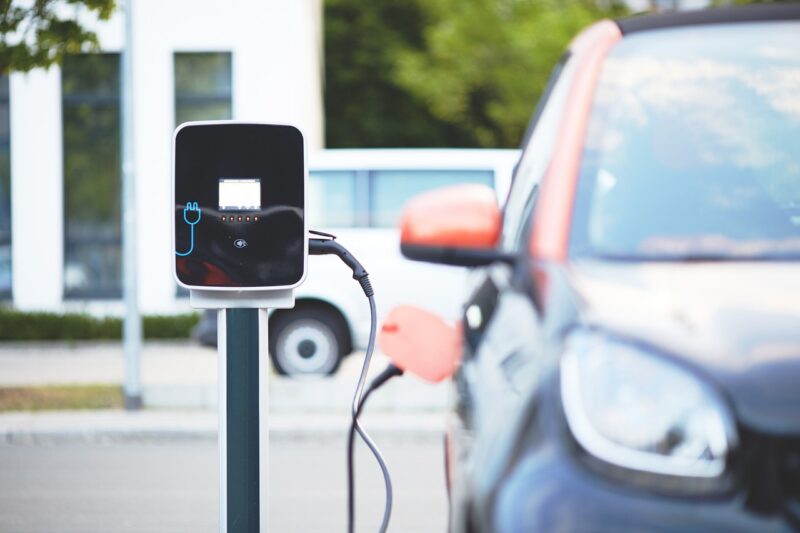How Electric Vehicles Are Changing the Way We Think About Car Ownership
November 12, 2024

As the world transitions towards a greener future, electric vehicles (EVs) have emerged as a game-changer, reshaping our understanding of car ownership, driving habits, and the relationship we have with automobiles. No longer just a trend, electric vehicles are becoming a dominant force in the automotive market, prompting individuals, families, and businesses to rethink how they view mobility and transportation.
1. The Rise of Electric Vehicles: A Brief Overview
The journey of electric vehicles began in the early 19th century but has gained significant momentum in recent years due to advancements in technology, increased awareness of climate change, and government initiatives promoting electric mobility. Manufacturers like Tesla, Nissan, and Chevrolet have paved the way for a broad array of affordable EV options, while global sales continue to rise steadily.
According to research, the global electric vehicle market is projected to grow at a compound annual growth rate (CAGR) of over 22% from 2021 to 2028. This surge is influenced by factors such as:
- Environmental Concerns: Growing awareness around carbon emissions and climate change is driving consumers towards more sustainable transportation options.
- Government Incentives: Many governments are offering tax credits, rebates, and subsidies to make EVs more financially appealing and accessible.
- Technological Advancements: Innovations in battery technology, charging infrastructure, and energy efficiency are enhancing the performance and feasibility of electric vehicles.
The increasing popularity of EVs is transforming the way we think about ownership, driving, and mobility in general.
2. Rethinking Car Ownership: The Shift Towards Mobility as a Service (MaaS)
Traditionally, car ownership has been viewed as a necessity for convenience and freedom. However, as electric vehicles become more prevalent, they also inspire a shift towards Mobility as a Service (MaaS), where consumers prioritize flexible transportation solutions instead of owning personal vehicles.
This paradigm shift can be attributed to several factors:
- Cost-Effectiveness: Owning an electric vehicle can be expensive upfront, even with government incentives. In contrast, utilizing ride-sharing services or subscribing to car-sharing platforms offers an economical alternative, especially for those who don’t drive daily.
- Access to a Variety of Vehicles: Car-sharing platforms often provide access to a range of EVs, enabling users to choose the best vehicle for their trip without the hassle of ownership and maintenance costs.
- Sustainability Focus: As more people express interest in reducing their carbon footprints, the appeal of shared electric vehicles becomes stronger, allowing individuals to contribute to sustainable transportation solutions without the burden of ownership.
Overall, the mindset of automobile ownership is evolving, with consumers increasingly recognizing the value of flexibility and access over necessity.
3. The Impact of Electric Vehicles on Daily Life
As EV adoption rises, there are both direct and indirect impacts on daily life for individuals and communities:
- Convenience and Accessibility: With the growing network of charging stations, the accessibility of electric vehicles improves significantly. Unlike traditional gas stations, EV chargers can be integrated into everyday locations, such as shopping centers and workplaces, making charging convenient.
- Quiet and Clean Urban Environments: As more EVs replace those powered by fossil fuels, city streets experience reduced noise pollution and better air quality, transforming the urban landscape into cleaner, quieter spaces that prioritize the well-being of residents.
- Innovative Usage Patterns: Electric vehicles enable unique applications, such as carpooling and shared charging arrangements, allowing people to come together for mutual benefits like reduced costs and increased efficiency in transportation networks.
The shift towards electric vehicles creates a symbiotic relationship between individuals, communities, and the environment that fosters improved quality of life and sustainable practices.
4. Charging Infrastructure: A Catalyst for Change
One of the main challenges holding back widespread EV adoption has been the lack of charging infrastructure. However, advancements in charging technology combined with increasing investments are overcoming this hurdle. Important elements of this infrastructure include:
- Fast-Charging Stations: The arrival of super-fast charging stations can recharge EV batteries in under 30 minutes, making long journeys more feasible. These stations are strategically placed along highways and main roads to promote EV use.
- Home Charging Solutions: Many EV owners install home charging stations, allowing them to power up overnight conveniently. This shift eliminates visits to gas stations altogether while maximizing mobility opportunities.
- Public and Workplace Charging:* As cities and businesses begin to provide more charging options, EV users can charge up while they work or during events. This public charging network will make electric vehicle ownership even more appealing to consumers reluctant about reliance on charging convenience.
Eventually, the expansion of charging infrastructure will catalyze a deeper integration of electric vehicles into our lives, changing how we think about travel and transportation.
5. Economic Implications of Electric Vehicle Ownership
Electric vehicles also come with economic benefits that can influence car ownership mindsets:
- Reduced Fuel Costs: Charging an electric vehicle is generally cheaper than filling a gas tank. Lower operating costs can lead consumers to rethink traditional car ownership models, choosing to invest in EVs instead of traditional vehicles.
- Lower Maintenance Requirements: Electric vehicles typically have fewer moving parts than internal combustion engine vehicles. This means reduced maintenance and repair costs, providing a compelling reason for consumers to transition to EV ownership.
- Resale Value Considerations: The growing demand for electric vehicles is leading to improved resale values. As consumer interest rises, individuals are reconsidering the long-term value of ownership, factoring in future resale prices when purchasing new electric vehicles.
These economic implications further drive the rethinking of car ownership, highlighting the financial advantages of transitioning towards electric vehicles.
6. Conclusion: Embracing a New Era of Automotive Thinking
The emergence of electric vehicles is not just a technological advancement; it represents a fundamental shift in our perception of car ownership, mobility, and environmental responsibility. As we adapt to a world increasingly defined by electric vehicles, we must embrace innovative notions of mobility that prioritize access over ownership, sustainability over consumption, and technology over convention.
By recognizing the potential of electric vehicles to reshape our lives, we can foster a more responsible, fulfilling relationship with transportation while contributing to a cleaner, greener future for generations to come. The journey towards electrification may have begun, but the road ahead remains full of exciting opportunities and challenges for individuals and society alike.






